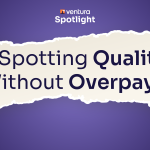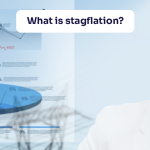Many of you might be invested in stock markets, looking for hot tips for stock investment or searching for a mutual fund with highest returns. If you invest in fixed deposits, you are perhaps interested in knowing the minimum amount of fixed deposit you can start with or are keen to find out the minimum fixed deposit period. However, is your investment/savings plan viable for the long term?
As we celebrate 75 years of Indian Independence this year, let’s explore how we as individuals can ensure our financial independence...
In simple words, when you can take complete control of your finances and don’t depend on anyone else to pay even the tiniest bill, you can say you are financially independent. In general, this term is associated with living a financially independent life, post retirement.
While you can use various online calculators to ascertain the quantum of retirement savings needed to live an independent life, all of them will have a number of assumptions especially on critical influencers such as inflation.
To arrive at a definite amount that you will need to amass by the time you retire, it is wise to consult a qualified financial planner. However, here are ten simple rules that can work wonders for your financial independence.
The key difference between saving and investing is that the former maintains your funds for use while the latter is an attempt to maintain and grow the value of your money. The power of compounding refers to the growth your investments can attain by staying invested for the long term. For example, you might be aware that the upper limit for investing in Public Provident Fund (PPF) is Rs 1.5 lakh p.a. at present. And it pays an interest of 7.1% p.a. Thus if you invest Rs 1.5 lakh annually in instruments such as PPF for the next 20 years, you would accumulate Rs 62.2 lakh by 2041.
And while you might be doing a mutual fund comparison to find out which one is the best, a simple calculation based on anecdotal evidence may astonish you. In the 20 year period between August 2003 and August 2022, BSE Sensex has generated a return of 15% on a compounded annualized basis. With such a rate of return, an investment of Rs 1.5 lakh per annum for the last 20 years could fetch you a whooping sum of Rs 1.53 crore.
In other words, via the power of compounding an investment of Rs 3 lakh per annum (i.e. Rs 25,000 per month) with a 50% allocation to PPF and 50% to the Sensex could return Rs 2.16 crore in 20 years! This is the most crucial factor to achieve financial independence.
And if you noticed something in the chart, it takes at least 15 years to build up the first Rs 1 crore, but due to a relatively large base, the next 1 crore is amassed really quickly.
In short, your financial independence can come from simple changes to your saving/spending habits and inculcating a little discipline when handling money, just remember to:
Happy Investing!
Disclaimer:
The blog is for information purposes only and anything mentioned herein shouldn’t be construed as a fundamental reason to buy/hold/sell any stock. Furthermore, the information provided in the blog and observations made there from shouldn’t be treated as the extension of recommendations made on the other properties of Ventura Securities. If you follow any research recommendations made by our fundamental or technical experts, you should also read associated risk factors and disclaimers.
We strongly suggest you to consult your financial advisor before taking any decision pertaining to your finances. Asset allocation becomes extremely relevant.
We, Ventura Securities Ltd, (SEBI Registration Number INH000001634) its Analysts & Associates with regard to blog article hereby solemnly declare & disclose that:
We do not have any financial interest of any nature in the company. We do not individually or collectively hold 1% or more of the securities of the company. We do not have any other material conflict of interest in the company. We do not act as a market maker in securities of the company. We do not have any directorships or other material relationships with the company.
We do not have any personal interests in the securities of the company. We do not have any past significant relationships with the company such as Investment Banking or other advisory assignments or intermediary relationships. We are not responsible for the risk associated with the investment/disinvestment decision made on the basis of this blog article.

Midcaps: Sweet Spot or Danger Zone? | What HSBC MF’s Cheenu Gupta Thinks | Ventura Spotlight
4 min Read Dec 17, 2025
Understanding Option Pin risk near expiry
4 min Read Dec 12, 2025
EPS in the Stock Market
4 min Read Dec 12, 2025
What is stagflation?
4 min Read Dec 10, 2025
Did Andhra Pradesh Just Trigger India’s Next Spirits Boom?
4 min Read Dec 10, 2025
Post your comment
You must be logged in to post a comment.